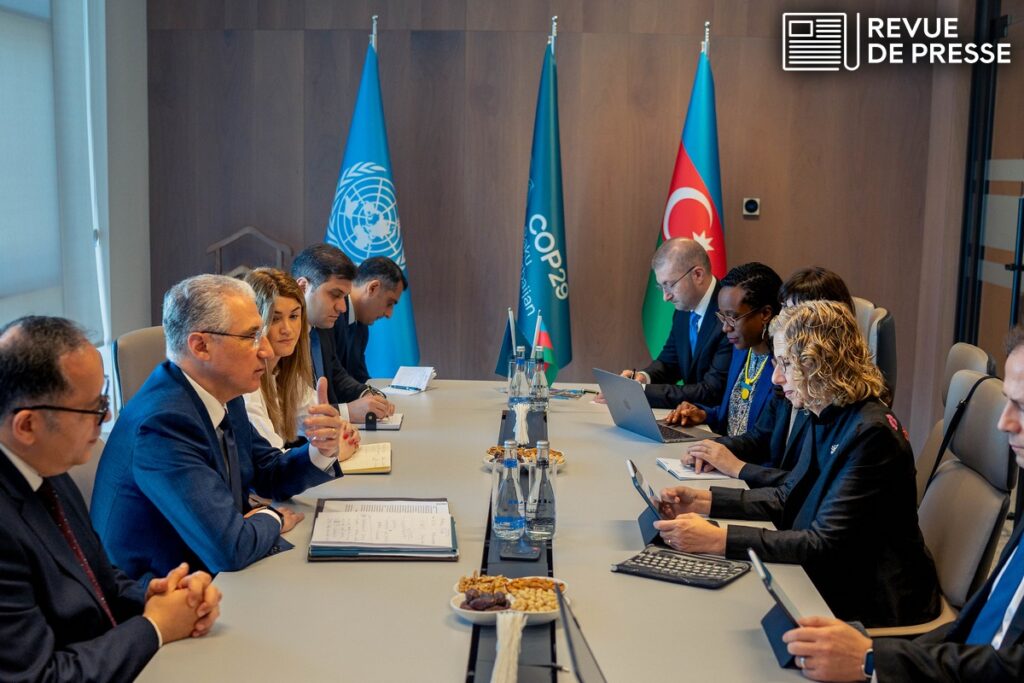The COP29 summit in Baku raises crucial issues around climate financing, as negotiators attempt to gather 1 trillion dollars per year. Developing countries are requesting at least 1,300 billion dollars annually to counter the effects of climate change, a challenge exacerbated by the persistent inaction of developed nations. As discussions focus on a new climate financing target, tensions are rising over the need to hold major emitting powers accountable for their historical contributions to environmental crises. This year, the battle for global financial commitments has become a matter of survival. Geopolitical concerns add to the impasse, with key actors like Trump threatening to undermine climate agreements, while figures like Mia Mottley are calling for increased international cooperation.
At COP29 in Baku, discussions focus on the crucial issue of climate financing. Developing countries are demanding at least 1,300 billion dollars per year from wealthier nations to address the impacts of climate change. This year, the goal is to agree on a new annual amount, called the “new collective quantified goal,” to meet urgent funding needs, essential for survival in the face of climate disasters and adaptation. Sandra Guzman, an activist voice present at the conference, emphasizes the importance for developed countries to take on their historical responsibilities by contributing through grants rather than loans. The summit is encountering tensions, particularly due to global dissent and critical references to the colonial past of certain countries.

the challenges of climate financing at COP29
The climate summit of the COP29, held in Baku, Azerbaijan, represents a crucial opportunity for negotiators to establish structured climate financing of 1 trillion dollars per year. The stakes are immense, as developing countries need substantial funding to tackle the devastating effects of climate change while implementing sustainable solutions in the long term. The challenge is not only to mobilize these amounts but also to ensure that these funds are correctly allocated and used effectively. The pressure is therefore on the shoulders of industrialized nations, which have historically been responsible for the majority of emissions.
the cost of inaction and the importance of financing
In the absence of sufficient financial commitment, economic losses linked to global warming could reach catastrophic levels. According to recent studies, the gap between adaptation needs and available funds could widen, necessitating additional funding of several hundred billion per year by 2030. This deficit highlights the urgency of substantial financing, especially for vulnerable countries that are already suffering significant climate impacts. Discussions at the COP29 could be decisive in bridging this gap and establishing a fairer economic model.
initiatives and future perspectives
In the face of the climate emergency, various initiatives are emerging during the COP29. Among these, the idea of implementing a global wealth tax to directly support climate financing is gaining increasing interest. This potential solution could generate hundreds of billions of dollars annually, thus covering a significant portion of the global financing need. However, this requires collective political will and strong international collaborations. As discussions continue, the pressure is mounting for concrete decisions to be made, ensuring that the necessary funding is truly put in place and accessible for all nations.
"Le financement climatique mondial pour l'adaptation devait doubler d'ici 2025, mais il est en déclin, mettant en péril les ODD et les investissements en résilience existants", la Secrétaire exécutive adjointe de @ECA_OFFICIAL @HananMorsy14 lors de #CCDA2024 pic.twitter.com/tjYmHpHPEI
— ECA (@ECA_OFFICIAL) August 31, 2024
Articles similaires
Thank you!
We will contact you soon.














